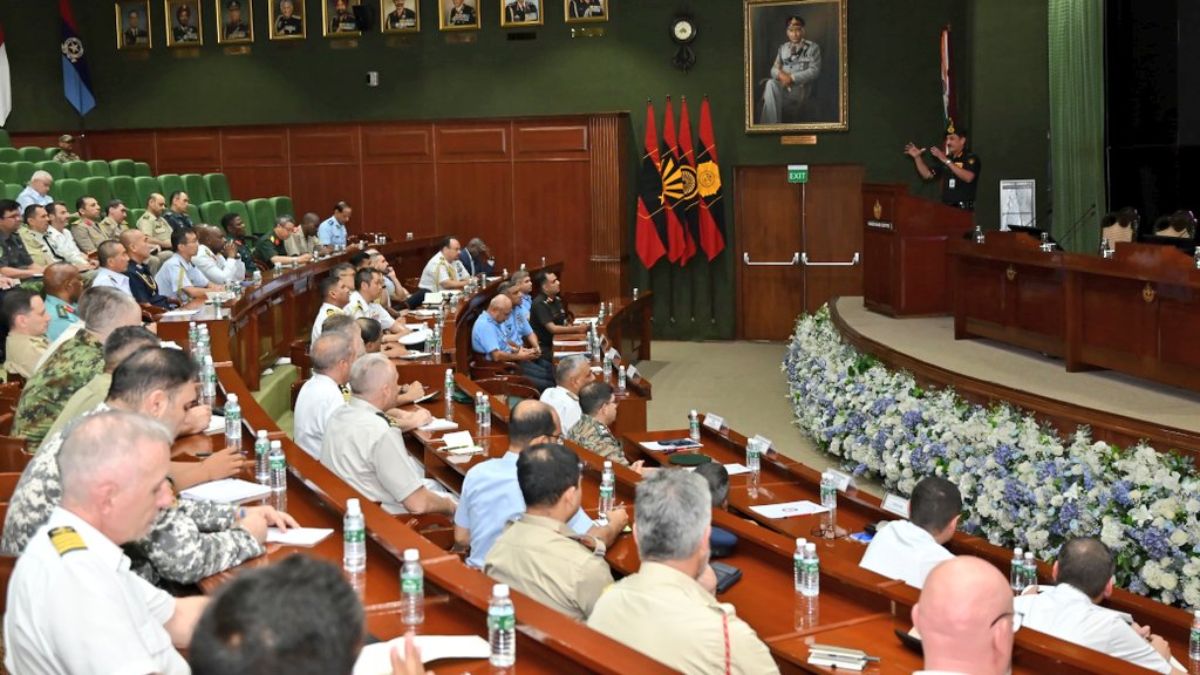India briefs foreign defence attaches on Operation Sindoor, excludes China & Turkey
India has briefed defence attaches of 70 nations on Operation Sindoor against terrorists and their backers. Sources said that India excluded China’s and Turkey’s officials from the briefing.
read more
India has briefed defence attaches from 70 nations on Operation Sindoor conducted in response to the Pahalgam terrorist attack.
Sources, however, told CNN-News 18 that officials from China and Turkey were not invited to the briefing. Both of these countries have
supported Pakistan in the conflict
and provided weapons that Pakistan used to attack India.
Under Operation Sindoor, India initially
struck nine terrorist sites
in Pakistan and Pakistan Occupied Jammu and Kashmir (POJK) on May 7. Later that day, Pakistan launched missiles and drones at many Indian cities and India responded the next morning with strikes on Pakistan air defence units and radar sites. Over the next two days, in response to continued Pakistani aggression,
India struck at least eight Pakistani airbases
in addition to more air defence and radat sites.
Follow our live coverage of India-Pakistan tensions here
Defence Intelligence Agency (DIA) chief Lieutenant General DS Rana led the briefing that touched upon the aspects of planning, targeting, and joint functioning of the armed the military during Operation Sindoor.
DIA chief briefs about Operation Sindoor
In a post on X, the Integrated Defence Staff (IDS) Headquarters said that Rana briefed defence attaches from 70 nations.
The IDS HQ said that Operation Sindoor “has set new normals in India-Pakistan relations, highlighting India’s demonstrated strength and national resolve through military superiority in the new-age warfare”.
“DG DIA elaborated on deliberate planning process for selection of targets with confirmed terror linkages. The integrated, precise, and prompt response by Indian armed forces to achieve the stated objectives, executed through intense-multi domain operations was also highlighted,” the IDS said.
Lt Gen DS Rana, Director General Defence Intelligence Agency #DG_DIA briefed the Foreign Service Attaches of 70 nations on the successful conduct of #OperationSindoor that has set #NewNormals in #India – #Pakistan relations, highlighting India’s demonstrated strength and national… pic.twitter.com/3aF7rRpddg
— HQ IDS (@HQ_IDS_India) May 13, 2025
Previously, India had briefed envoys of 13 of the 15 United Nations Security Council (UNSC) member-states about Operation Sindoor. Only Pakistan and Sierra Leone, which does not have an envoy in Delhi, were not briefed at the time.
The IDS HQ further hailed the joint funcioning of the forces under Operation Sindoor and said the the briefing highlighted the “technological superiority of Indian armed forces in niche non-kinetic domains of space, cyber, and electronic warfare”.
ALSO READ:
Operation Sindoor: With battlefield edge, India cornered Pakistan to seek peace & that’s new normal
Rana also informed the attaches about the anti-India misinformation campaign by adversaries and its ramifications for regional peace.
China and Turkey excluded from briefing
Sources told CNN-News 18 that China and Turkey were not invited to the briefing of defence attaches.
While they did not give any reason for their exclusion, it could have been because of their active involvement in Pakistan’s attacks on India.
Pakistan used
Chinese JF-17 warplanes and used PL-15 missile
to attack India. Pakistan also used Turkish drones to attack India.
Turkey and China also issued statements favourable to Pakistan that indicated that they were picking the side in the conflict.
Chinese Foreign Minister Wang Yi in a call with Pakistan’s Deputy Prime Minister and Foreign Minister Ishaq Dar said that China would “continue to stand by Pakistan in upholding its sovereignty, territorial integrity and national independence”. Similarly, Turkish President Recep Tayyip Erdogan met Pakistani Prime Minister Shehbaz Sharif shortly after the Pahalgam attack and extended “unwavering support” to Pakistan on the Kashmir issue.

)


